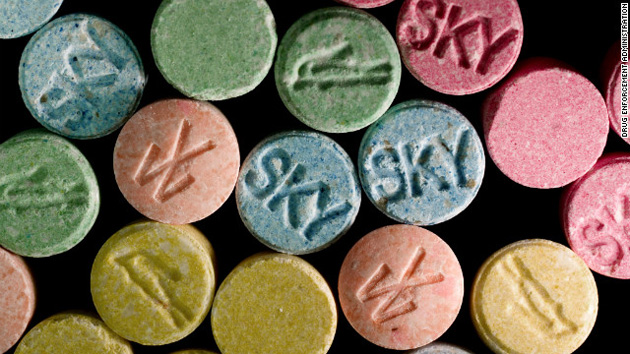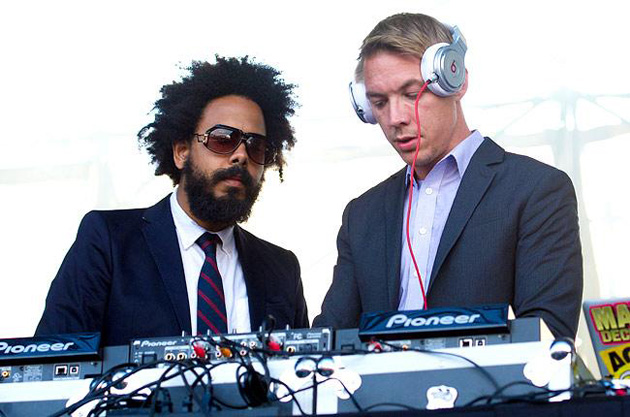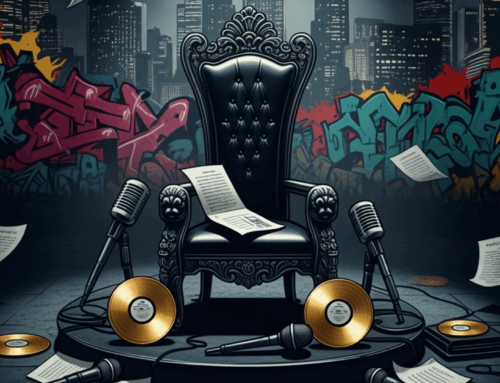How soon after a highly-publicized death should artists – or anyone, for that matter – start spouting off a bunch of nonsense about everything that’s wrong with Americans’ attitudes toward drugs? When you’re a high-profile artist, you ought to wait – at least a few months.
Although considered a blink-and-you’ll-miss-it music news moment over the past month, Major Lazer’s Rolling Stone interview at the Boston Calling Festival did just that. Less than two weeks after the two deaths at Electric Zoo, their statements have poor timing, are borderline tasteless, and advocate irresponsibility.
To give you some context, the interview published on September 12 has Major Lazer’s Jillionaire and Diplo comparing rave drug usage to alcohol, cars, and sex and the education that goes behind them. Diplo even goes on to talk about the deaths as a result of oxycontin and heroin in Philadelphia in the late ‘90s/early ‘00s – a bit of street cred, yes, but his statement about a lack of publicity is off the mark. At least locally (As a Philadelphian resident at the time, I remember this issue, too, and remember the billboards all over town), it got a fair amount of coverage, but comparing rave culture drug usage to prescription drug abuse in Philly’s low-income white neighborhoods is, frankly, apples to oranges.
But what truly smacks of disrespect is Jillionaire’s remark: “It’s going to sound weird, but we need to teach kids how to do drugs, the same way we teach them about drinking responsibly and having safe sex. If you’re going to go to a festival, drink water for six days before you get there; don’t drink no alcohol. If you’re going to do a pill and a half, don’t do four more and then pass out, overheat, and die of cardiac arrest. Instead of acting like drugs don’t exist, acknowledge that drugs will be at a festival and address them.”
There’s just so much wrong with this, it’s hard to know where to start. But, in tying Diplo’s oxy-to-Molly comparison and Jillionaire’s overall wrongheadedness, you’ve got one seriously glaring error: You can’t compare controlled substances (alcohol or prescription drugs) to something that’s not regulated and, frankly, dangerous.
As we discussed back the Electric Zoo incident occurred, there’s a myth circulating around the EDM community, be it at the festivals or even the major clubs of Miami: that Molly (or MDMA) is pure and therefore safer than ecstasy.
 It’s not, and as the drug use continues to proliferate at festivals and clubs, the lesser and lesser it gets. In fact, there’s a good chance that the supposedly “pure” Molly some kid at a festival takes is likely “bath salts.”
It’s not, and as the drug use continues to proliferate at festivals and clubs, the lesser and lesser it gets. In fact, there’s a good chance that the supposedly “pure” Molly some kid at a festival takes is likely “bath salts.”
So, when it comes to “teaching kids how to do drugs,” you can’t prepare someone to handle a substance that has so many variables and so little consistency. Alcohol, driving, and even sex at least come with a set of rules, of regularity, or at least moderate predictability. For the most part (unless you catch an untreatable STD or get into a life-changing car wreck), there’s a second time to learn from your mistakes. After that first horrific experience of vomiting and blacking out or crashing into a pole and totaling your ride, you learn about tolerances and safety, and stay away from that extreme.
Illegal drugs, on the other hand, don’t offer this luxury. The pill you pop at one club might not be the same as one you take the next; one leaves you dehydrated, and the other, depending what other additives are in there, may leave you dead or seriously hospitalized, and you don’t know when that will happen, or how it will happen, or what that pill negatively reacts with. Because you don’t know what you’re taking, it’s an experience of unpredictability every time. It’s the type of thing that, even when you do Jillionaire’s prescribed water preparation, you’ll still end up passed out and getting revived by the paramedics.
Along with this, drugs themselves change. For instance, just a few weeks after Electric Zoo, a small-scale EDM event at Quassy Amusement Park in Middlebury, Conn., ended early after four drug overdoses from something called 2CP. Whether this is the next “club drug” or not, its body overheating effects were strong enough to warrant defibrillation. Now, how can you prepare for that?
But amidst everything totally off the mark with this interview, there is one flipside – that EDM festivals are wrongfully being targeted. Diplo had explained at the time: “Persecuting a festival is not going to help it because kids are going to do them regardless. Hell, they’ll do them in their houses. That’s why crystal meth is a problem in America. Drugs are a big problem in America, because we have money to spend and a culture that wants to be turnt up all the time.”
Instead, rather than telling readers that “kids need to be taught how to use drugs,” both Diplo and Jillionaire should’ve addressed the issues facing large-scale EDM festivals: Extremely lax security that allows drugs and drug-using patrons to get into the festivals in the first place, huge crowds that create a block for paramedics reaching a festivalgoer who overdosed, and even fewer resources (seriously, when it’s obvious your event’s audience is on a drug that’s known to dehydrate, don’t charge $10 for 12-ounce bottles of water) for dealing with an overdose. While this is something promoters and venues should be preparing for, and not just for EDM events, the artists on the bill shouldn’t be spouting off nonsense about “safely taking drugs.”
Yes, there’s a lot wrong with the U.S.’s attitudes toward drugs – and when the level of criminalization and lengthy prison terms are considered, drug use at EDM events is extremely small and inconsequential in comparison. And, yes, festivalgoers and club patrons ought to be careful, as well. But advocating “drug education” like sex ed and drivers’ ed? Honestly, Major Lazer just ought to stay in the studio and talk about what they know – making dancehall-influenced electronic music and doing a middling DJ show – rather than advocating something that’s more dangerous than helpful.




